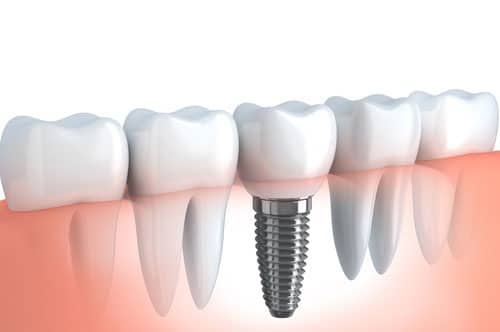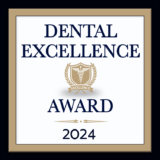
Tooth loss causes a lot of pain and misery. Getting dental implants in Shorewood is your best choice for alleviating these symptoms.
Even if you’ve lost just a single tooth, the consequences are dire. You’ll begin to feel pain and discomfort when you chew your food, and your ability to speak clearly will be severely impaired. One lost tooth can lead to more. That’s because your teeth will be much more vulnerable to the fractures and cracks that will allow bacteria to infect your teeth, gums, and other important parts of your oral cavity.
Lost teeth also throw your jaws out of alignment, negatively impact the shape and appearance of your face. Leaving your remaining teeth to move around in the space created by the lost teeth, exacerbating the alignment problems.
In our last post, we did a in-depth analysis on the difference of dentures vs implants. Our key take is that while dentures have an effective treatment for the problems caused by lost teeth, they fall short of the new standard set by the advent of dental implants. We can provide life-changing dental implants solutions no matter your situation.
However, not all people with missing teeth can actually get dental implants placed. Dental implants require oral surgery to be placed, and your body must be able to actually support the implant successfully; implant failures are rare, but they can be serious, and your dentist will be able to determine if you are a suitable candidate.
Do You Have What It Takes?
Keep in mind that the information in this post does not constitute “requirements” for getting dental implants; everyone has a different health profile, and in some cases, your dentist maybe able to actually resolve problems that would otherwise prevent you from getting dental implants. If you are interested in dental implants, give us a call and make an appointment for an exam and consultation.
A good candidate for a dental implant procedure is an adult, who is in good general and oral health, and can tolerate general anesthesia.
What Does Good General Health Mean?
In this context, good general health means that you are free of serious diseases, systemic diseases, or your symptoms are considered under control. Diseases such as arthritis, type II diabetes, high blood pressure, and autoimmune diseases and disorders are the ones that present the greatest risk. Once again, just having one of these diseases will not automatically “disqualify” you from receiving dental implants in Shorewood. In such cases, your dentist needs to know your entire health history to make the best and safest recommendation.
You should also be able to tolerate general anesthesia. The procedure for the placement of teeth implants is surgical, and you will need to be “out”. Some individuals (for a number of reasons) don’t tolerate general anesthesia; for example, you might be someone for whom anesthesia has no effect, or a limited effect; people who don’t tolerate general anesthesia are also at considerable risk of complications. If you know that you’ve had a “checkered past” with general anesthesia, let your dentist know.
Finally, you must be a fully grown adult. Children and teenagers cannot get dental implants under any circumstances. This is because their jaws (along with the rest of their bodies) are still growing and taking shape. A dental implant needs a stable jawbone to work, and to avoid failure. Placing a dental implant in the mouth of a child or teenager would be futile. That’s because the implant would most certainly fail at some point.
Oral Health Considerations
This is the area that causes the most problems for people, simply because tooth loss is most often caused by advanced gum disease. Besides loss of a tooth (or more), advanced gum disease (periodontitis) will deteriorate your jawbone. Just having a missing tooth will also cause the bone to degrade. If your tooth loss is due to gum disease your dentist can help you gain the necessary bone density in your jaw with a bone graft. Bone from one part of your body is transferred to your jaw. This will enable you to receive dental implants. An additional benefit of dental implants is that they actually stimulate bone growth in the jaw.
Smoking and Dental Implants
Smoking and dental implants do not mix. If you’re a smoker who has lost teeth and is considering dental implants, you should quit. Quitting in this context does not mean just for the placement of the implants. You should quit smoking for good. Smoking with dental implants greatly increases the chances of implant failure. In addition, smoking will also retard the healing process that is critical to the success of the implant.
Implants work so well because they are embedded in the jawbone, underneath the gums. After placement, they will be firmly where they need to be, but it will take a few weeks before they actually are in permanently. Dental implants actually fuse with the jawbone while it heals, undergoing a process called osseointegration. Meaning “coming together with bone”, the implant and your jaw will become more or less the same thing. Smoking will either slow down this process, negatively impact the outcome of osseointegration. But can also prevent it from happening entirely.
Looking to End the Suffering by Getting Dental Implants in Shorewood?
Give us a call today! One of our friendly staff will be able to book your appointment as well as answer any general questions you might have.
Dial (815) 725-5991 to reach our front office! Or contact our Shorewood family dentistry online.




